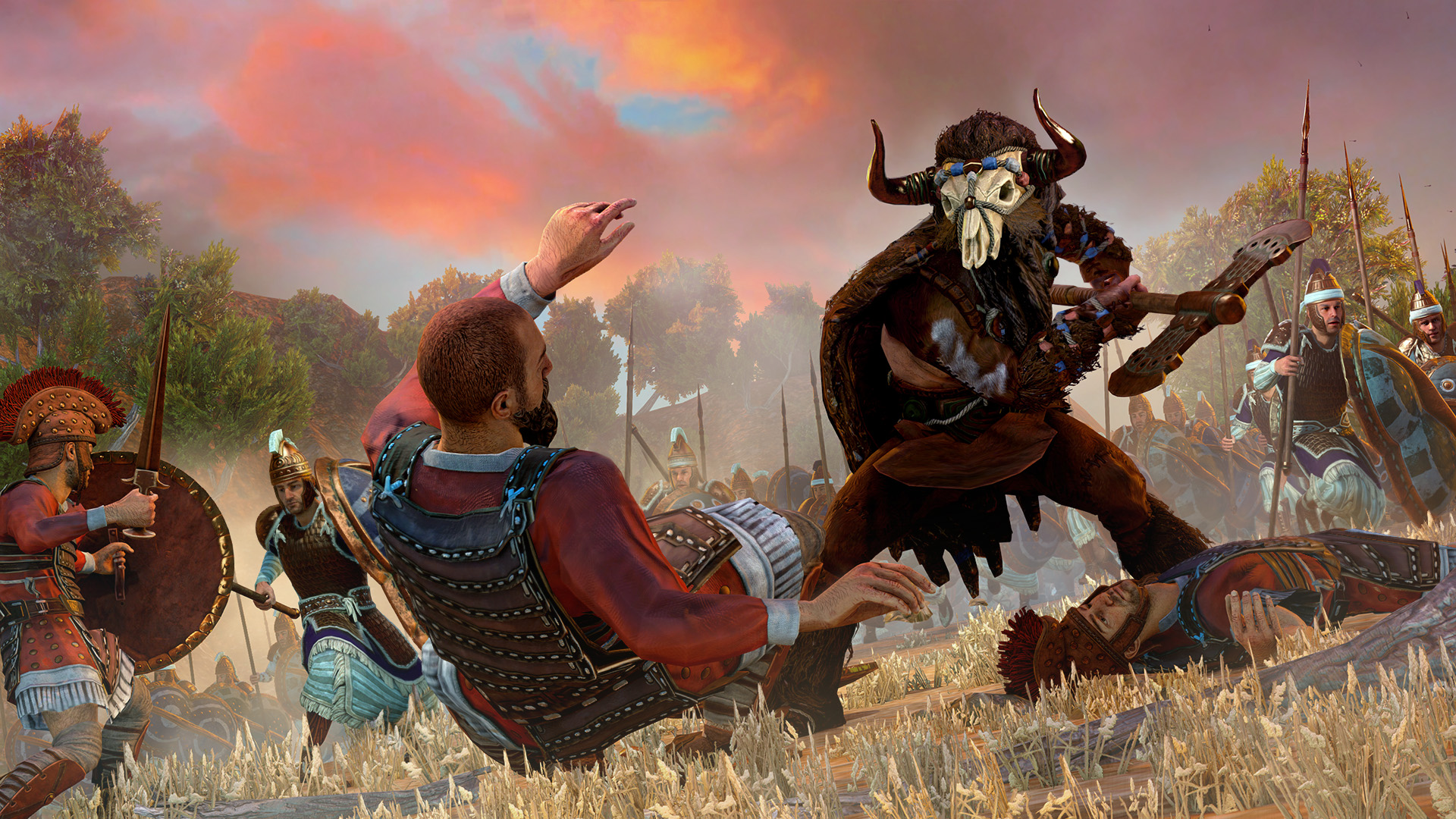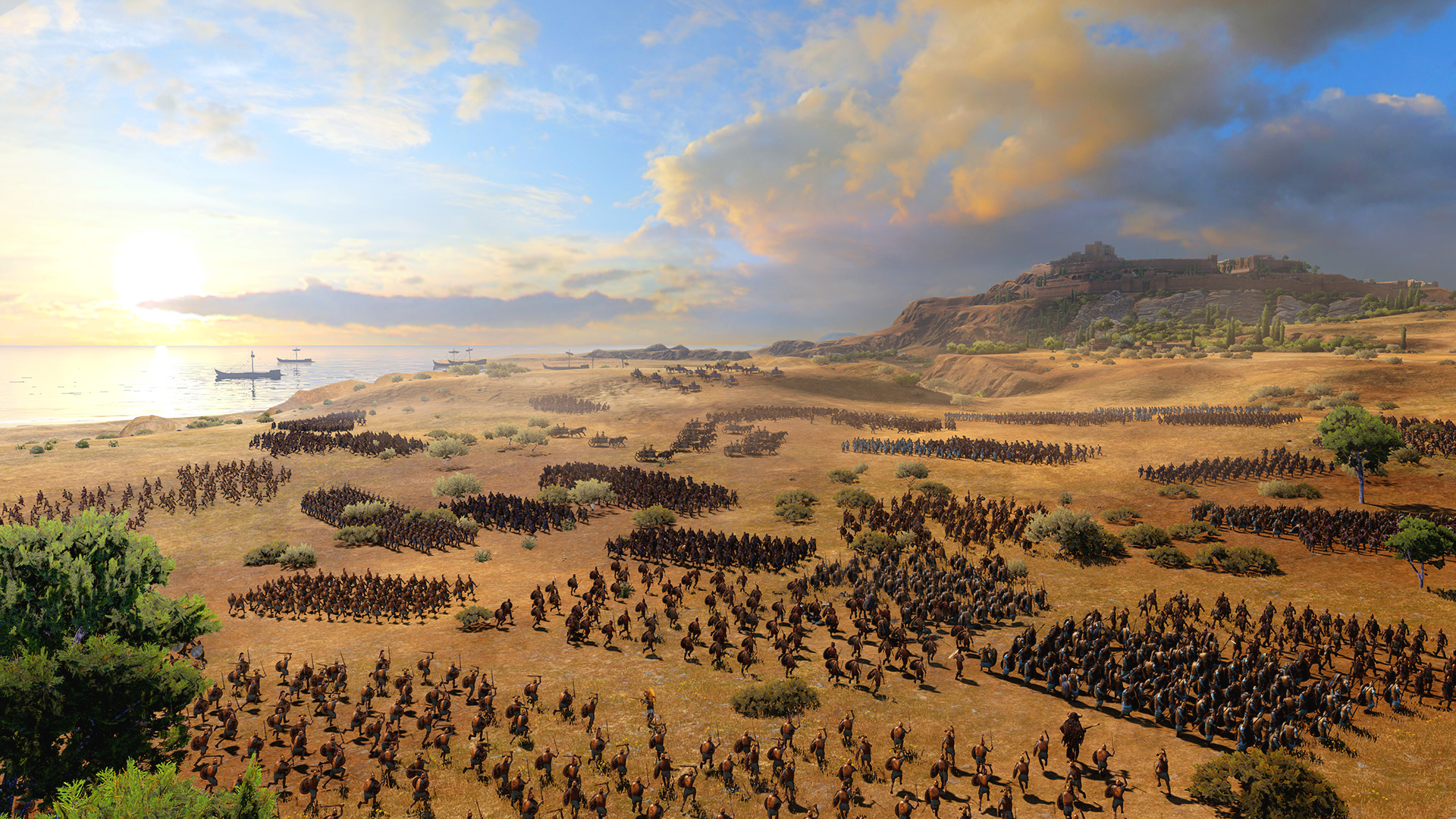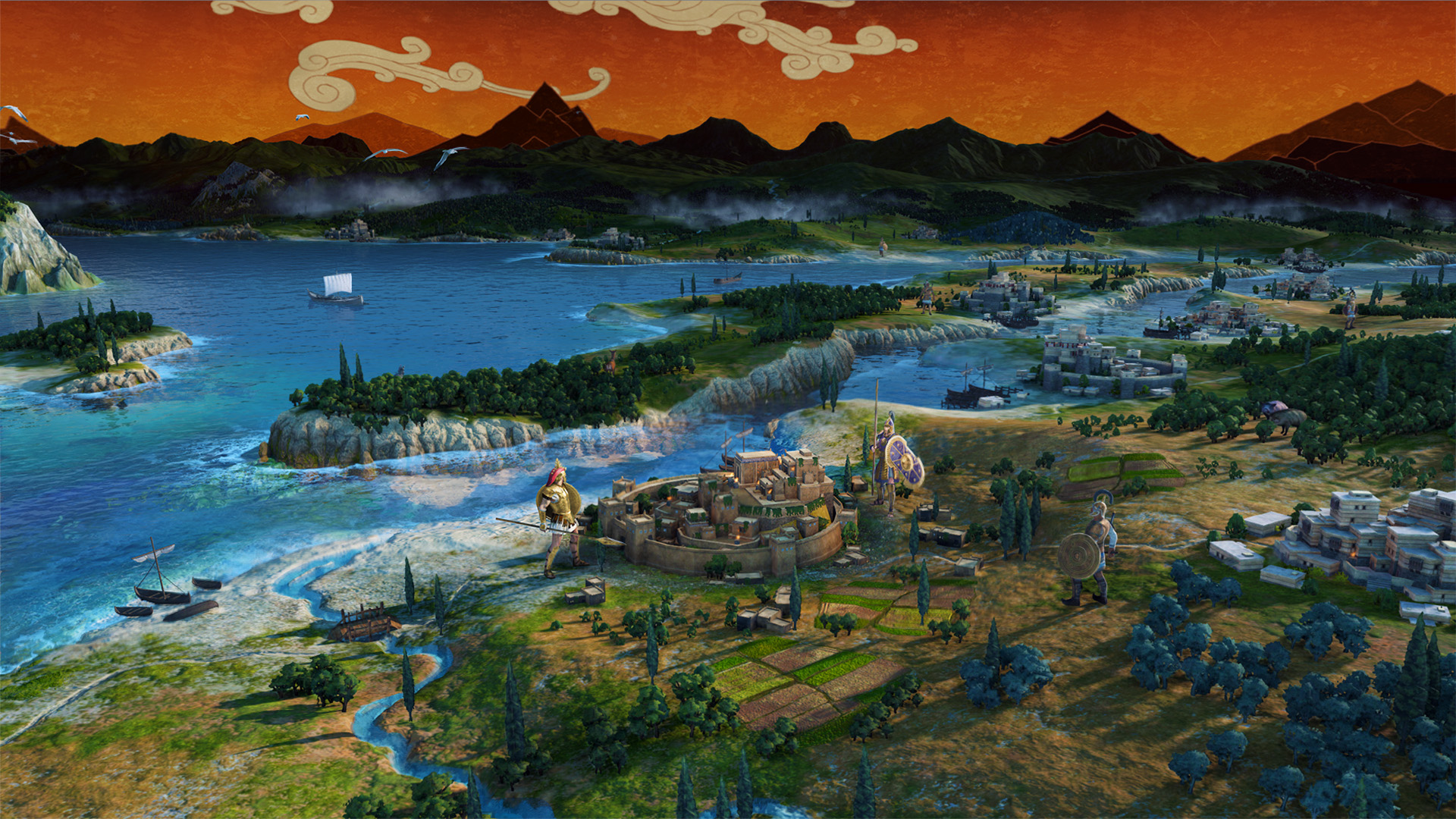How not to play as Sparta in Total War Saga: Troy
Choose your targets wisely.

Life is complicated playing as king Menelaus of Sparta. Paris of Troy has seduced his wife, there's a rebellion to the south, and perhaps most annoying of all, his allies simply won't stop asking him for free stuff.
In traditional Total War style, my first task in charge of Sparta is to quell the rebellion, unite the province, and start making some proper money. In Troy there are now five different resources to hoard. They vary in rarity and use. Food and wood are easy to acquire, and you need them to build basic buildings and keep your people fed. Bronze and gold are much rarer, but you need them to access the best units in the game.
Sparta is pretty well off at the start of Troy's campaign, and the nation has good access to ports that can generate trade. Maybe that's why I receive a message from about one neighbouring leader per turn asking for my stuff. Here's Althaemenes of Pteron—a middling force in Ancient Greece—hoping for a peace treaty, as long as I give him 4000 food. 4000! Admittedly I have 6k plus in my city's storehouses, but I'm not willing to part with so much grain for measly peace.
Instead I recruit an army, smash the rebels and set sail for Crete, mostly because it's right there and I quite fancy owning Crete. This is a terrible mistake as I'm met on the shore by a force that far outstrips my gaggle of slingers, axe warriors, and spearmen. Menelaus bravely turns on his heel, gets back on the boat, and flees to safety.
The smarter thing to do would be to send an agent. There are three standard types. Spies give you map information and provide opportunities to sabotage your enemies. Envoys spread your faction's influence and use their diplomacy skills to improve resource production. Priestesses take advantage of the new Divine Will feature, which lets you customise your faction by pledging your fortunes to a Greek god of your choice. Ares and Athena will give you combat boosts, while Poseidon helps you cross the oceans. Build shrines and install Priestesses there to boost your Divine Will score and access those bonuses faster.

There are also new Epic Agents, which try to present a realistic take on the legendary mythical heroes of the era. The Gorgon is a scary woman who has woven snakes into her hair. She can't turn people to stone, but she can terrify an army and reduce their strength. The Seer can gain you favour with the gods, and the Satyr, er, sings so beautifully buildings build themselves instantly.
Mythical units continue the "truth behind the myth" theme. They are hard to get, but worth the effort to recruit a unit of Cyclops', who are enormous dudes covered in bones. As with most units in Troy, they are footsoldiers with a particular role to play. Heavy units struggle to move through new tough terrain types like deep mud, but once they hit the line they are almost immovable. Light infantry can hide in tall grass and move much faster on the battlefield. Flanking effects are more pronounced in Troy. If you can surround a unit they can go down very quickly.
Keep up to date with the most important stories and the best deals, as picked by the PC Gamer team.
I found that the infantry focus meant infantry battles tend to end up as one huge scrum, which looks great, but can be tricky to manage once all your forces are embroiled. Some units are specialised at taking on particular classes of infantry, so arranging the right matchups is an important tactical concern. Some units have special abilities too. Elite spearmen can change stance to unhook the shield on their back and boost frontal defence.

Heroes are back, though they aren't as massively important as they were in Three Kingdoms. Famous figures of the Iliad can go on epic adventures to unlock their true heroic potential and follow their path through The Iliad and the Epic Cycle. That's optional though, you can still shake off your hero's destiny and play Troy as a sandbox. You can level up your hero and unlock decent new abilities on their bespoke skill tree. There's no duelling in Troy, but if two heroes run into each other on the battlefield they'll start scrapping one-on-one. They aren't locked into those fights, but it's a cool excuse to show some smart battle animations.
The strategy map is gorgeous, of course, because Greece is gorgeous. This is a 'Saga' game, which basically means the game focuses in on a smaller area but with more detail. There are plenty of factions to barter with (and wage war on), and the resource system and the missions encourage you to chase particular sectors. Perhaps leave Crete to a little later in the campaign, though.
Troy is shaping up to be a characterful Total War game, but I think I've been spoiled by Three Kingdoms' lavish presentation and spectacular heroes. In both games it's interesting to see Creative Assembly play with myth and legend. Three Kingdoms had two game modes to appeal to fans who prefer a grittier, more historically accurate Total War game. Instead Troy treads a middle line. No-one is superhuman in this vision of Troy. If Menelaus had taken a slingshot to the skull in that foolish invasion, the fate of Sparta would play out very differently indeed. In that sense Troy realises a core Total War promise: to give you the reins of history and let you steer fate off a cliff into a river, just to see what will happen.
Part of the UK team, Tom was with PC Gamer at the very beginning of the website's launch—first as a news writer, and then as online editor until his departure in 2020. His specialties are strategy games, action RPGs, hack ‘n slash games, digital card games… basically anything that he can fit on a hard drive. His final boss form is Deckard Cain.


